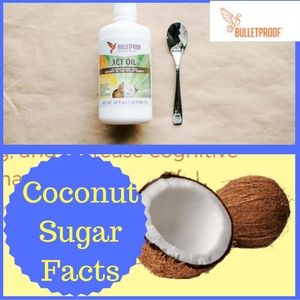 Coconut is very popular in many ways. As a tree, it has many uses. As a fruit, it offers many health benefits. It is even considered as a complete food in most tropical regions since it has water and meat. The pulp of the coconut tree also produces the popular coconut sugar, which is becoming known as a healthy alternative to refined sugar. Literally, nothing can be wasted from a coconut palm tree.
Coconut is very popular in many ways. As a tree, it has many uses. As a fruit, it offers many health benefits. It is even considered as a complete food in most tropical regions since it has water and meat. The pulp of the coconut tree also produces the popular coconut sugar, which is becoming known as a healthy alternative to refined sugar. Literally, nothing can be wasted from a coconut palm tree.
Are you currently considering coconut sugar as an alternative to your regular sugar? Do you think it is the right kind of sugar to switch to? While it is true that coconut sugar ranks much, much lower than white sugar when it comes to its glycemic index, there are also some pros and cons about coconut sugar that you should know about to make sure it is indeed the better alternative sugar for you and your family’s health.
Let’s look into the bright side –
Coconut sugar is tasty and nutritious. According to a data from the Philippine Food and Nutrition Research Institute, coconut sugar is a very good source of nutrients as compared to the regular sugar. It offers many natural nutrients that are found in the coconut palm and this includes potassium, iron, calcium, zinc, short chain fatty acids, polyphenols, and antioxidants.
It even has property called inulin known for slowing down the absorption of glucose.
Now let’s look into the components of coconut sugar and see if it’s really a smart sugar alternative for you.
When it pertains to calorie measurement, there is really no difference between the coconut sugar and the regular table sugar.
When it comes to its major components, this is where real facts come in.
There are claims that coconut sugar is absolutely fructose-free since it has about 70 to 80 percent of sucrose, with about 3 to 10 percent of glucose.
Is it really zero percent in fructose? – NO.
What is fructose? Fructose is actually a combination of both sucrose and glucose. In fact, sucrose is made up of half fructose. Therefore, coconut sugar contains about 38 to almost 49 percent of fructose. In a nutshell, coconut sugar and white sugar have relatively the same amount of fructose.
If you’re considering to switch to coconut sugar as an alternative for maintaining your blood sugar, then it is no different to your regular table sugar. You have to consider other sources of sweetener instead.
However, if you want sugar that offers great nutrients, then coconut sugar could be the right alternative.
About the Author: Stanley Page is a health blogger by heart and a nutritionist by profession. With the rise of being natural and organic when it comes to health and beauty, he aims to provide readers real knowledge when it comes to choosing healthy alternatives. He recommends checking out blog.bulletproof.com for more info about this.